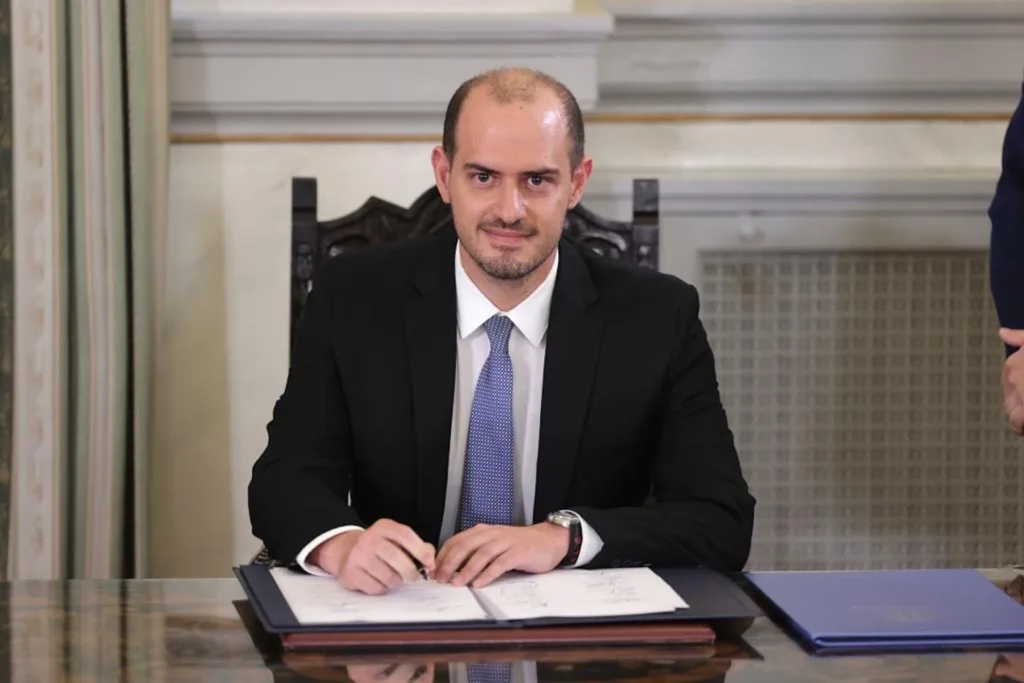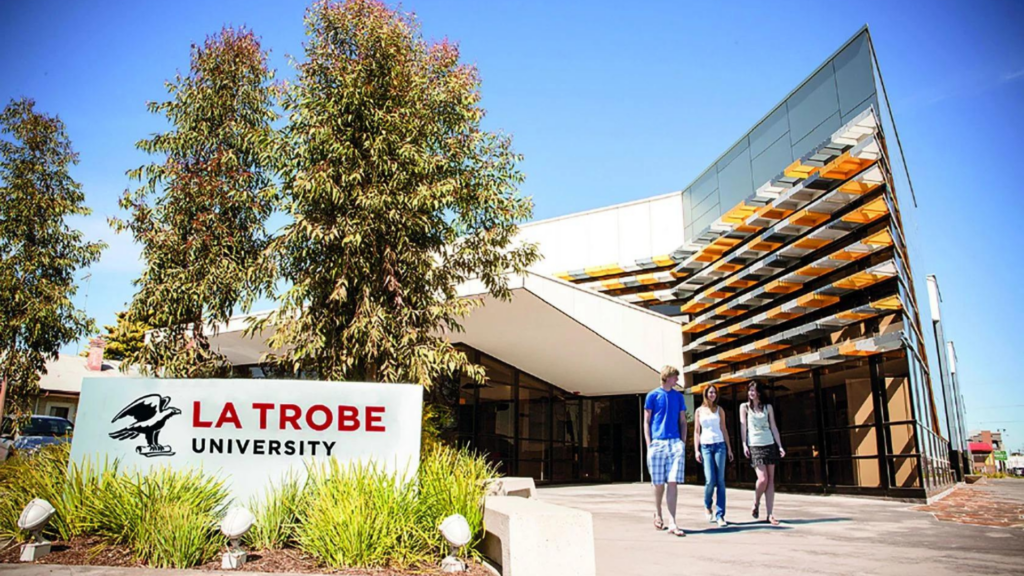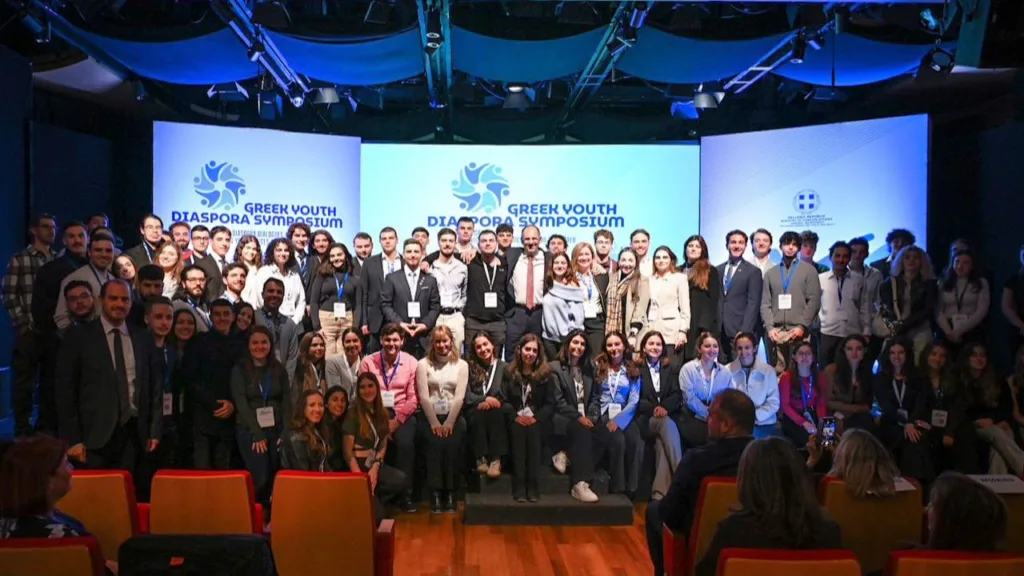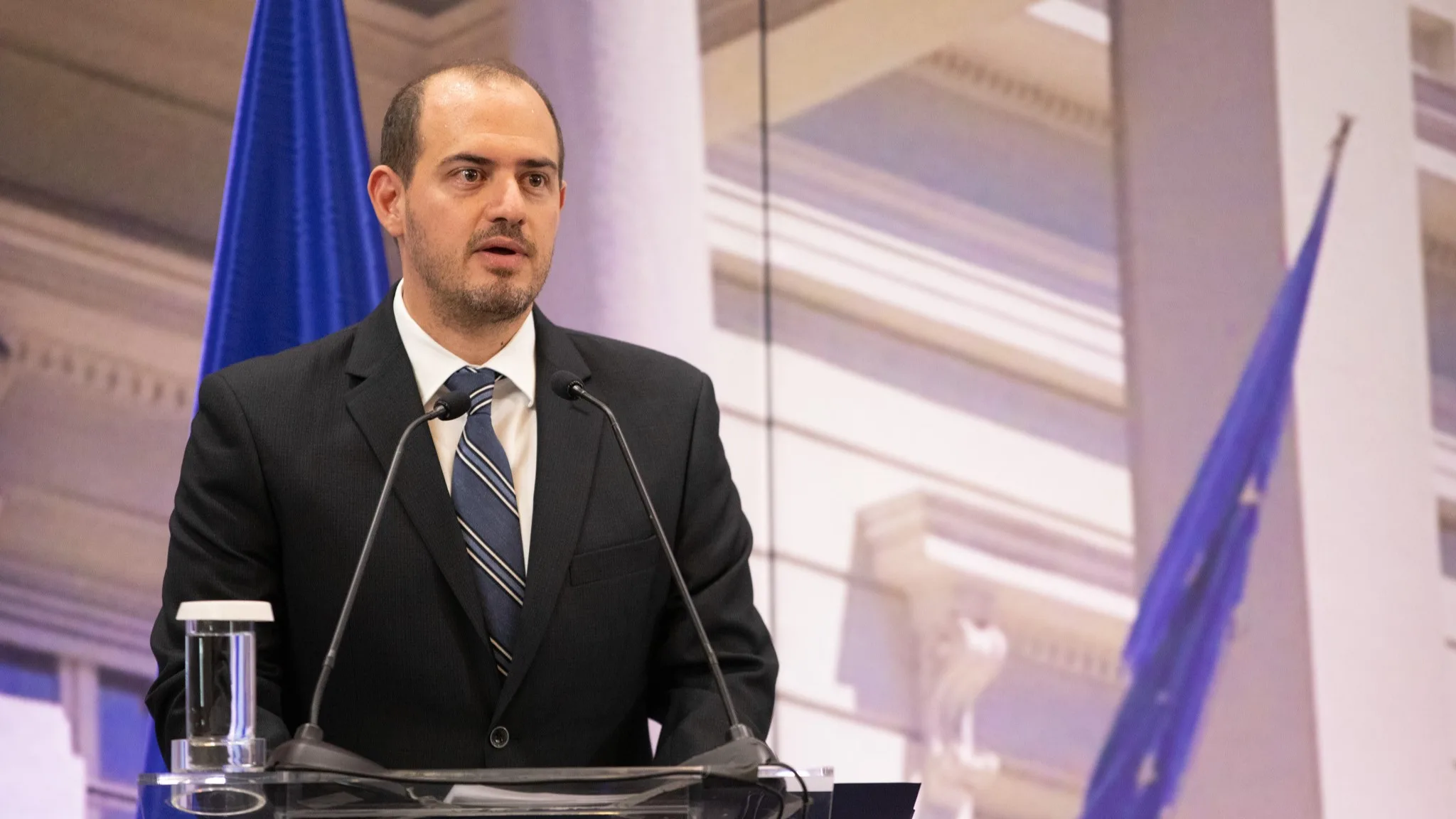Exclusive interview by Ilias Karagiannis
The promotion of Greek studies worldwide is gaining fresh momentum through the Strategic Plan for the Greek Diaspora recently announced by Greece’s Ministry of Foreign Affairs, and inspired and implemented by Deputy Minister Giorgos Kotsiras.
At a time when Chairs of Greek studies have been shrinking dramatically — from 344 in 2006 to around 200 in 2019 — this strategic plan emerges as an ambitious endeavour to preserve and promote the Greek language and culture across the five continents.
As part of this strategy, Mr Kotsiras has announced a significant initiative for the Greek community in Australia through an exclusive interview with The Greek Herald. The Greek Studies Programme at La Trobe University in Melbourne will receive financial support in 2024, marking the Ministry’s tangible commitment to the educational communities of the diaspora. According to information gathered by The Greek Herald, this funding will initially amount to €10,000 (approximately $16,500).
At the same time, Mr Kotsiras has expressed his intention to visit Australia at the earliest opportunity. The aim of the visit is to further strengthen ties with the dynamic Greek community, with which he maintains continuous communication, and to present the comprehensive strategic plan in person.
The plan, however, is not limited to academic Chairs. It also places particular emphasis on the sustainability of Greek community media, which serve as vital guardians of the Greek language and culture in multicultural environments like Australia.
The Ministry of Foreign Affairs aims to establish a sustainable framework for the development of these media, ensuring the continuation of their crucial role.
With vision and targeted initiatives, the Ministry of Foreign Affairs and Mr Kotsiras are laying the foundations for a new era in the relationship between the homeland and the Greek diaspora. Their approach focuses on addressing the genuine needs of the diaspora while also leveraging the opportunities offered by technology and global collaboration.

Deputy Minister, the plan to strengthen Chairs of Greek studies comes at a critical juncture, as many of them face serious sustainability challenges. What specific measures is the Ministry of Foreign Affairs implementing to support them? Is there also provision for the Chairs in Australia, where the Greek community maintains unbreakable ties with the homeland?
Chairs and programmes of Greek studies are invaluable hubs of Hellenic learning and Philhellenism. They foster the study of the Greek language, showcase our rich cultural heritage, and promote academic research. These Chairs serve as key points of reference for Greeks in the diaspora, contributing to the strengthening of their identity. Their presence at leading universities around the world carries both symbolic and substantive significance for Hellenism. They enhance Greece’s prestige and act as bridges connecting Greece with the wider world.
At a time when Greek studies are indeed facing sustainability challenges, we have decided to take proactive steps to support them. Our aim is to provide strategic support in a targeted and comprehensive manner, as part of a long-term plan that mobilises all relevant stakeholders. For this reason, we have included the promotion of Greek studies in the Ministry of Foreign Affairs’ Strategic Plan for the Greek Diaspora (2024-2027).
Within this framework, we are planning a series of initiatives, such as networking and connecting these programmes with universities and institutions in Greece, as well as exchange and hosting schemes for students, researchers, and educators. We will also facilitate the distribution of books and educational materials and leverage digital tools for distance learning.
Our planning could not overlook the Chairs and Greek studies programmes in Australia. Their contribution to the preservation of the Greek language, the promotion of our culture, and the strengthening of the identity of Australia’s large and active Greek community is indisputable.
Has the process for the Chairs in Australia to be supported begun? Is there a specific timeline for the implementation of these measures?
As part of the multifaceted support for Chairs of Greek studies, we have also included financial assistance, based on available resources, in a coordinated manner and in accordance with the recommendations of our embassies and consulates abroad.
In the initial phase for 2024, I am pleased to announce that the Greek Studies Programme at La Trobe University in Melbourne will receive financial support. Our objective is to provide regular support for these Chairs, with adjustments made according to available resources and emerging needs.

With the creation of a registry of Chairs and Greek studies programmes in higher education institutions abroad — a project that has been incorporated into the Recovery and Resilience Fund — we will be able to systematise the recording of their activities, impact, and needs. This will also enhance their communication with the Ministry of Foreign Affairs and strengthen their connections with universities and institutions in Greece, as well as with organisations within the diaspora.
What are the main challenges the Ministry faces in its efforts to preserve and expand Greek studies abroad, especially in geographically distant countries like Australia? Are there any plans for you to visit Australia soon to present the strategic plan to the Greek community?
It is true that Greek studies have faced challenges in recent years, partly due to the global decline in student enrolments in humanities departments. Preserving and expanding Greek studies is a complex, multidimensional issue, which is naturally linked to Greek language learning (Hellenic literacy). It involves multiple stakeholders, including families, diaspora organisations, the education systems of host countries where these Chairs operate, and, of course, the Greek State.
The Ministry of Foreign Affairs’ Strategic Plan for the Greek Diaspora includes the promotion of the Greek language and culture as one of its key objectives, with a particular focus on younger generations. To this end, we are developing initiatives to support Hellenic literacy by leveraging modern technological tools.
One notable example is the expansion of the staellinika.com online platform for learning Greek, as well as the provision of distance learning courses in collaboration with the National and Kapodistrian University of Athens and other Greek universities.
We are also placing special emphasis on expanding hosting programmes for children and young people from the diaspora in Greece. These programmes offer participants the opportunity not only to improve their Greek language skills but also to gain a deeper understanding of Greek history and culture, fostering a personal, experiential connection with their ancestral homeland.
Recently, 14 young people from Australia were hosted in Greece as part of an educational programme for diaspora youth from the Southern Hemisphere. During their visit, they had the opportunity to attend the 1st Diaspora Youth Conference held in Athens. Two of them even participated as speakers at the conference.

While Australia is geographically distant from Greece, the connection between the diaspora and the homeland remains strong. The efforts of our compatriots to preserve the Greek language and cultural heritage, and pass it on to future generations, are commendable. We actively support this effort by utilising modern tools and encouraging collaborations. I am in constant communication with representatives and members of the Greek community in Australia, and I hope to visit this beautiful country at the earliest opportunity to be close to the dynamic Greek community there.
In a multicultural environment like Australia, diaspora media play a crucial role in promoting and preserving the Greek language and culture. Are there any plans from the Ministry to include them in a relevant programme so they can continue their important mission?
Indeed, diaspora media have a key role in promoting the Greek language and culture, preserving the identity and cohesion of Greek communities worldwide, and connecting them with Greece. Our goal is to provide practical, multifaceted support to diaspora media.
To this end, we encourage their collaboration with Greek organisations and media in Greece, especially with ERT and the Athens News Agency, and support any worthwhile initiative that highlights their work. One such example is the International Summer University in Boston, which will take place in May 2025, under the auspices of the General Secretariat for Greeks Abroad and Public Diplomacy of the Ministry of Foreign Affairs, focusing on the challenges and prospects for diaspora media.
Our aim is to expand the actions and collaborations that will help community media meet the modern needs of the diaspora and fulfil their demanding role.
